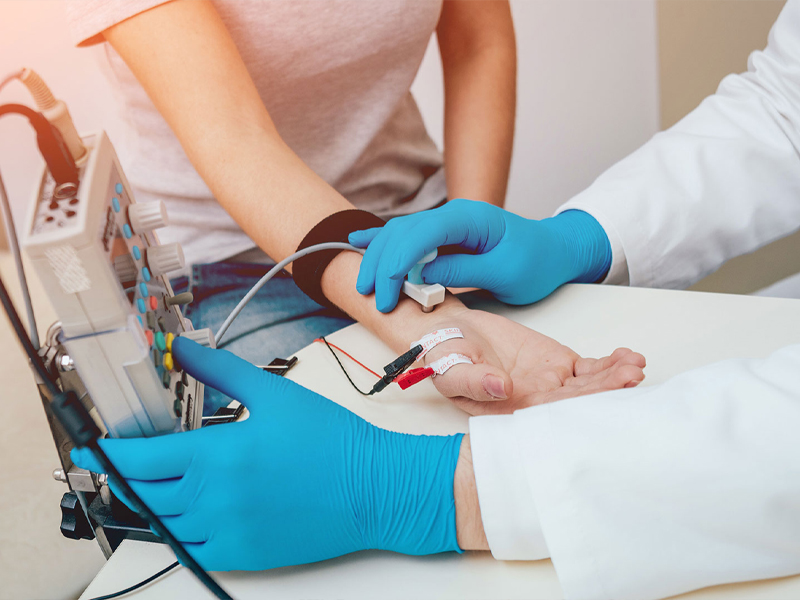
EMG (Electromyography) EMG is the examination of nerves and muscles in our body using electrical methods. Using a mild, linear electrical current that does not excessively disturb the patient, the electrical conduction functions of the nerves are measured. For this, a low-intensity electrical current is applied to the fingers and skin areas overlying the nerves, and the current is collected from another part of the nerve or skin with computerized devices for measurement. This process helps determine whether the nerve is functioning properly. By inserting thin, disposable, sterile needle-shaped electrodes into the muscles, the health of the nerve supplying the examined muscle or whether the muscle itself is healthy is understood by monitoring and analyzing the electrical activity in the muscles through the EMG device screen. Needle EMG is frequently applied, but in some cases, examinations of nerve conduction alone may be sufficient. When is EMG performed? Nerve injuries (nerve cuts, traffic accidents, etc.) Nerve compressions (carpal tunnel syndrome, etc.) Diagnosis of neck and back hernias Investigation of the effects of diseases that can impair nerve functions (such as diabetes, kidney disease) on nerves, Diagnosis and follow-up of facial paralysis Diagnosis of muscle and neuromuscular junction diseases (myasthenia gravis, myopathy, etc.) Diagnosis of spinal cord diseases accompanied by muscle atrophy (ALS, polio, etc.) Before the examination... It is recommended that the patient comes to the examination on a full stomach. Since the examination is usually performed on the arms and legs, comfortable and easily removable clothing should be preferred. Female patients are advised not to wear pantyhose. Before the examination, hands and feet should be clean, and cosmetic products such as creams should not be applied. Jewelry on the hands and arms (rings, bracelets, watches, etc.) should be removed before the examination, as they may affect the examination. There is no problem in taking regularly used medications. However, patients using blood thinners (aspirin, coumadin) should inform their doctor in advance. If the patient has a pacemaker, it is recommended to alert the doctor before the examination.
